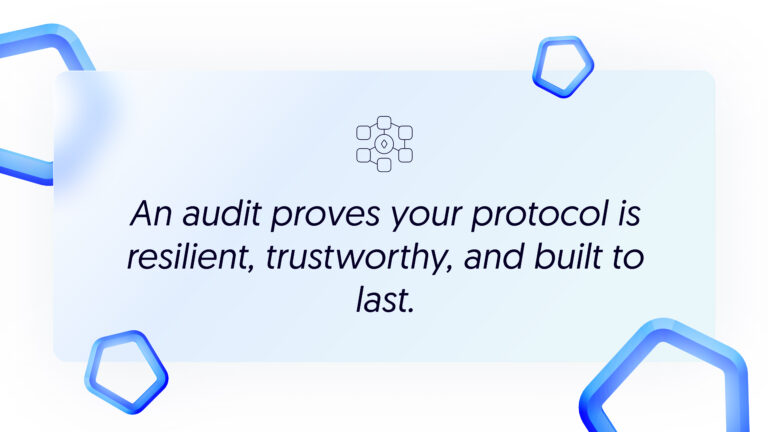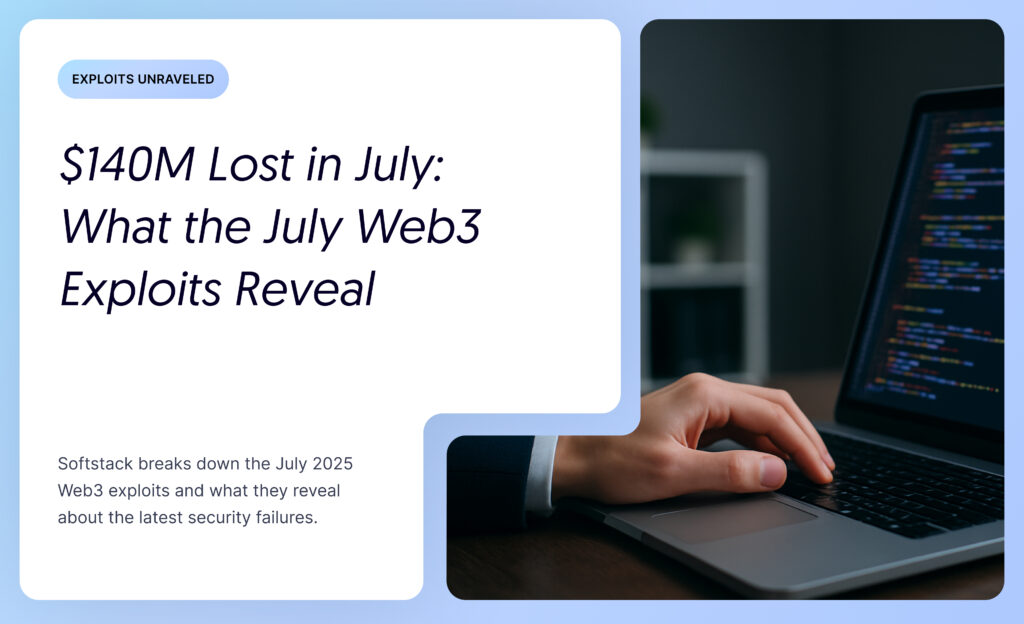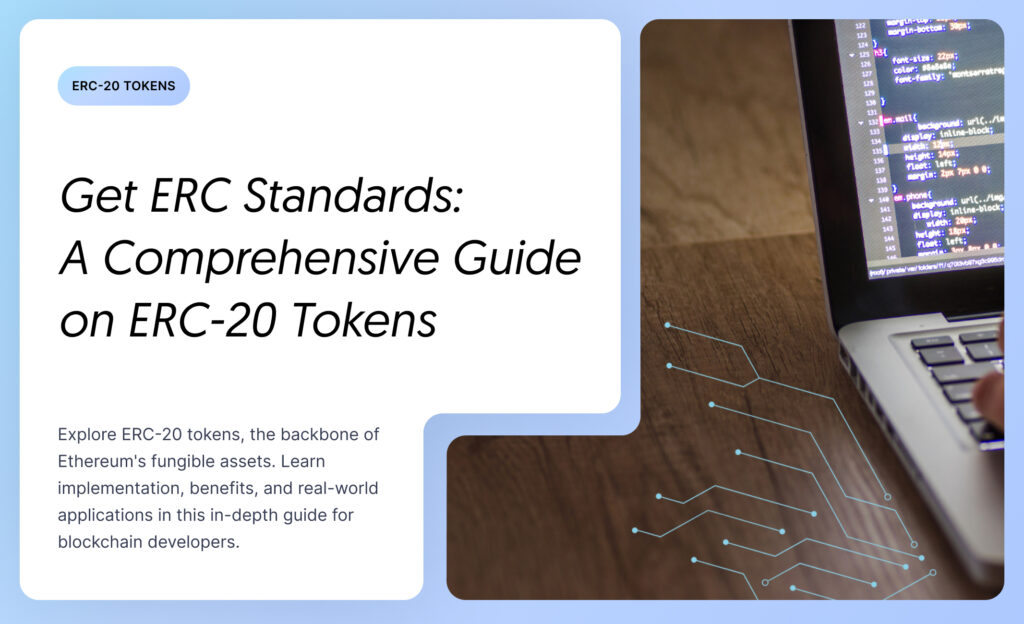Summarize:
How Softstack Delivers End-to-End Protection for DeFi, Stablecoins, and Web3 Protocols
Security breaches in Web3 are growing fast. In a single year, DeFi exploits alone caused over $2 billion in losses. These hacks often stem from logic flaws, overlooked access controls, or unsafe integrations that a smart contract audit could have prevented.
If you’re building a protocol, a thorough and reliable audit process is critical. Not all audits are equal. At Softstack, our methodology is designed to uncover both surface-level bugs and deep architectural risks. This guide explains how we secure smart contracts through a structured, multi-layered approach—trusted by clients like Ripple, TON, Siemens, HAL Privatbank, BitGo and many more.
1. Discovery and Scoping
Every audit begins with understanding your codebase and defining what we will evaluate:
Collect repositories, test suites, and deployment scripts
Identify third-party libraries and on-chain dependencies
Define scope: contracts, lines of code, critical logic
Confirm deliverables, timelines, and communication flow
2. Automated Vulnerability Analysis
Our auditors use a range of tools to detect common weaknesses early:
Slither and MythX run over 1,000 checks in minutes
Dependencies are scanned for outdated or vulnerable packages
Solidcheck performs AI-powered scans and GitHub-integrated vulnerability discovery
3. Manual Code Review
Tooling is powerful, but manual review catches the most dangerous risks:
Line-by-line logic inspection of every contract
Focused analysis of access control, fees, token mechanics, and admin roles
Manual reviews identify up to 70% of critical issues missed by automation
4. Security Research and Attack Simulation
We model real-world attack scenarios to stress test your code:
Forked mainnet simulations: flash loans, MEV, oracle spoofing
Governance takeovers and admin permission escalations
Liquidity drain and slippage testing under heavy load
5. Formal Verification (Optional but Recommended)
For mission-critical DeFi or stablecoin modules:
Mathematical validation of logic using Certora, Scribble, and others
Verifies that properties like access controls and balances behave as expected
Often used to certify AMMs, lending protocols, and regulatory components
6. Audit Reporting
You receive a clear, structured, and actionable report:
Issues ranked by severity: critical, medium, low, informational
Each finding includes:
Technical description
Risk assessment
CVSS score and exploit scenario
Code fix recommendation
7. Fix Verification and Certification
Once you implement our recommendations:
We re-audit changed code and rerun tests
Manual validation confirms the resolution of each issue
You receive a final certification letter for compliance, investors, and listings
8. Ongoing Security Monitoring
Security is not a one-time event. We offer long-term protection via:
Mini-audits for new deployments, parameter changes, or feature additions
Bug bounty support via platforms like Immunefi
On-chain monitors for suspicious activity, upgrade proposals, or governance events
Why Choose Softstack?
We combine deep technical expertise with industry-leading transparency. Our smart contract audit methodology is trusted by over 1,200 protocols with zero post-audit exploits since 2017.
Whether you’re launching a stablecoin, DeFi protocol, or tokenized asset platform, we help ensure your project is secure, compliant, and ready for growth.

Partner with Softstack
Softstack is a German Web3 development and auditing firm with over 1,200 zero exploit audits since 2017. We deliver transparent, hands-on support from scoping through verification. Whether you are a seed stage startup or an enterprise protocol, we help you launch with confidence.
Ready to get started?
📞 Book a free consultation at https://calendly.com/softstack
OR
📤 Email hello@softstack.io with a link to your code repository so we can review your codebase and get you an accurate quotation.
Would you recommend Softstack to fellow Web3 builders?
Join our Service Partner Program (SPP) and provide your network with a trustworthy partner.
✅ Up to 20 percent referral commission
✅ Fast tracked onboarding
✅ Preferential rates
✅ Over 1 million dollars in partner savings via https://deals.softstack.io
✅ Lead sharing and co marketing support
👉 https://softstack.io/service-partner-program-spp
📁 Also available on GitHub: Smart Contract Audit Methodology Explained
Frequently Asked Questions
1. What is a smart contract audit?
2. How is an audit performed?
Auditors use both automated tools and manual review to analyze the code. They then provide a report with issues, risk levels, and recommendations.
3. Why does manual review matter?
Automated tools miss complex issues like business logic flaws. Manual review helps catch deeper bugs that could lead to major exploits.






